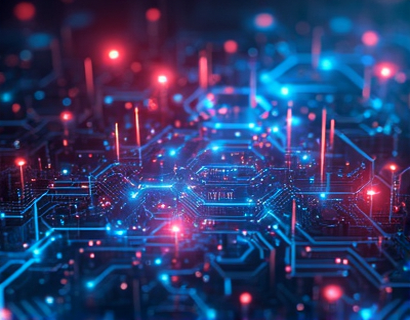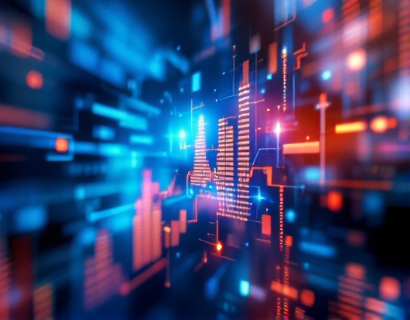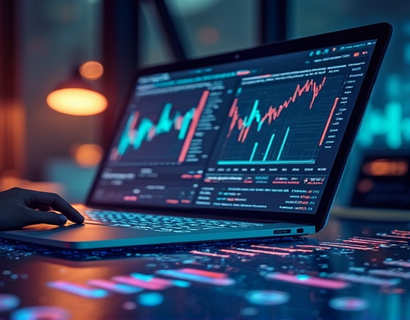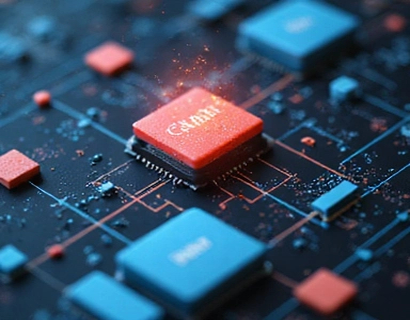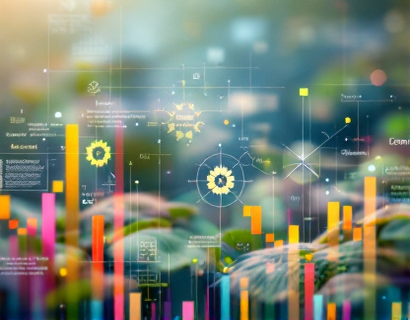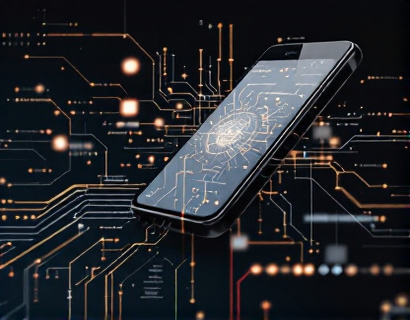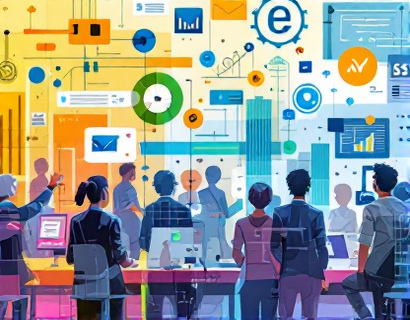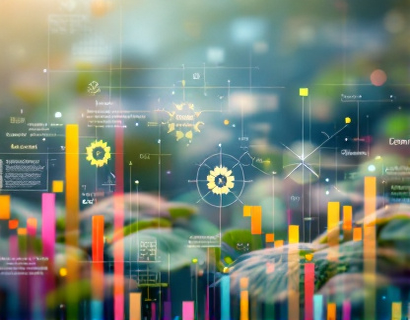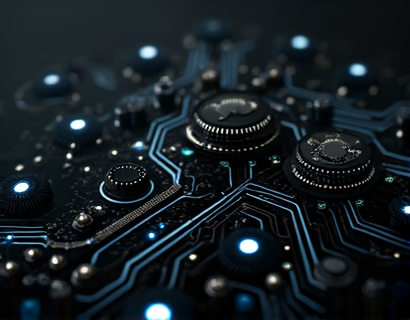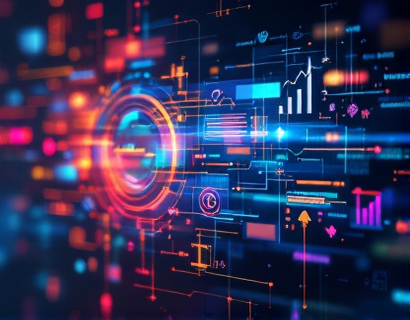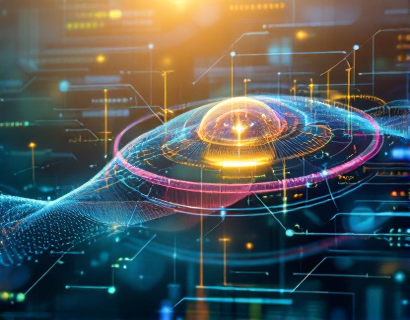Unlocking the Future: Harnessing Crypto and AI for Next-Gen Digital Transformation
The intersection of cryptocurrency and artificial intelligence (AI) is giving birth to a new era of digital transformation. This fusion is not just a technological curiosity but a powerful force reshaping how we interact with digital services, manage data, and secure transactions. For tech enthusiasts and early adopters, understanding this synergy is crucial as it opens doors to innovative solutions that promise to redefine user experiences and drive the next wave of technological advancements.
The integration of blockchain technology with AI is creating a robust framework for developing applications that are more secure, efficient, and user-centric. This article delves into the ways crypto and AI are merging to unlock unprecedented potential in the digital landscape. We will explore the foundational technologies, current applications, and future prospects of this dynamic duo, providing insights that are both educational and forward-looking.
Foundational Technologies: Crypto and AI
To understand the convergence of crypto and AI, it's essential to first grasp the fundamentals of each technology.
Cryptocurrency, a digital or virtual currency, uses cryptography for security and operates on a decentralized network known as a blockchain. This decentralized nature ensures transparency, immutability, and reduces the need for intermediaries, making transactions faster and more secure. The most well-known cryptocurrency, Bitcoin, was the pioneer, but thousands of other altcoins and tokens have emerged, each with unique features and use cases.
Artificial Intelligence, on the other hand, encompasses a range of technologies that enable machines to perform tasks that traditionally required human intelligence. These tasks include learning from data, recognizing patterns, making decisions, and even exhibiting forms of creativity. AI is divided into several subfields such as machine learning, natural language processing, computer vision, and robotics, each contributing to the broader AI ecosystem.
The combination of these technologies creates a powerful synergy. Crypto provides a secure and decentralized infrastructure, while AI enhances this infrastructure with intelligent algorithms and data processing capabilities. This union is paving the way for next-generation digital solutions that are not only more secure but also more intelligent and user-friendly.
Enhancing Security with Crypto and AI
One of the most significant benefits of merging crypto and AI is the enhancement of security measures. Traditional security systems are often centralized, making them vulnerable to attacks and breaches. By leveraging blockchain's decentralized nature, combined with AI's advanced threat detection capabilities, a more robust security framework can be established.
AI can monitor blockchain networks in real-time, identifying and mitigating potential threats before they escalate. Machine learning algorithms can analyze patterns and anomalies in transaction data, detecting fraudulent activities with high accuracy. This proactive approach to security is a game-changer for industries that handle sensitive data, such as finance, healthcare, and government.
Moreover, AI can improve the security of private keys and wallet management. Traditional methods of storing private keys are prone to risks like phishing and malware attacks. AI-driven solutions can create more secure key management systems, using biometric data and behavioral analytics to authenticate users and protect their assets.
Optimizing Efficiency through AI-Driven Blockchain
Efficiency is another area where crypto and AI intersect to create significant value. Blockchain transactions, while secure, can be slow and energy-intensive, especially as the network scales. AI can optimize blockchain operations by streamlining processes and reducing computational overhead.
Smart contracts, self-executing contracts with the terms directly written into code, can be enhanced with AI to automate complex decision-making processes. AI can analyze data inputs and execute smart contracts more efficiently, ensuring that conditions are met accurately and promptly. This not only speeds up transactions but also reduces the risk of errors and disputes.
Additionally, AI can optimize the consensus mechanisms used in blockchain networks. Proof of Work (PoW), the consensus algorithm used by Bitcoin, is known for its high energy consumption. AI can help develop more efficient consensus algorithms, such as Proof of Stake (PoS) or Delegated Proof of Stake (DPoS), by analyzing network data and predicting optimal parameters for energy efficiency and security.
Personalized User Experiences with AI and Crypto
The fusion of crypto and AI is also revolutionizing user experiences by enabling highly personalized and seamless interactions. One of the key areas where this is evident is in digital identity management.
Traditional identity verification processes are cumbersome and often rely on centralized authorities. By using blockchain to store identity data and AI to manage and verify this data, users can have greater control over their personal information. AI algorithms can authenticate users based on multiple factors, including biometric data, transaction history, and behavioral patterns, providing a more secure and convenient identity verification process.
Furthermore, AI can enhance customer service on crypto platforms by implementing chatbots and virtual assistants. These AI-driven tools can understand user queries, provide instant responses, and even handle complex transactions, all while ensuring privacy and security. This not only improves user satisfaction but also reduces the workload on human support teams.
Innovative Financial Solutions
The financial sector is one of the most transformative areas where crypto and AI are making a profound impact. Decentralized Finance (DeFi) is a prime example of this synergy, offering a range of financial services without traditional intermediaries.
AI can enhance DeFi platforms by providing sophisticated risk management tools. Machine learning models can analyze market data, predict price movements, and optimize investment strategies, helping users make informed decisions. AI-driven bots can execute trades automatically based on predefined criteria, reducing human error and increasing efficiency.
Stablecoins, cryptocurrencies designed to maintain a stable value, can be managed more effectively with AI. These tokens are crucial for reducing volatility in crypto transactions. AI algorithms can monitor market conditions and adjust stablecoin issuance and redemption rates to maintain stability, ensuring a more reliable store of value.
Supply Chain Transparency and Traceability
Beyond finance, the combination of crypto and AI is transforming supply chain management by enhancing transparency and traceability. Blockchain provides an immutable ledger for tracking products from origin to destination, while AI can analyze this data to optimize logistics and ensure compliance.
AI-powered systems can monitor supply chain activities in real-time, detecting bottlenecks, predicting delays, and suggesting optimizations. This not only improves efficiency but also ensures that products meet quality and regulatory standards. For industries like food and pharmaceuticals, where traceability is critical, this integration can significantly reduce risks and enhance consumer trust.
Moreover, AI can help in verifying the authenticity of products using blockchain. By recording product information on the blockchain and using AI to analyze this data, companies can prevent counterfeiting and ensure that consumers receive genuine products.
Healthcare Innovations
The healthcare sector is another area where the convergence of crypto and AI is showing immense potential. Patient data management, drug traceability, and clinical trials are just a few areas where these technologies can make a significant impact.
Blockchain can secure patient data, giving individuals control over their medical records while ensuring that healthcare providers have access to accurate and up-to-date information. AI can analyze this data to provide personalized treatment recommendations, predict disease outbreaks, and optimize resource allocation.
In drug traceability, blockchain ensures that pharmaceuticals are tracked from manufacturing to dispensing, reducing the risk of counterfeit drugs. AI can enhance this process by analyzing data from various points in the supply chain, identifying potential issues, and ensuring compliance with regulatory standards.
Clinical trials can also benefit from this integration. AI can streamline the recruitment and management of trial participants, while blockchain can ensure the integrity and transparency of trial data. This not only accelerates the development of new treatments but also builds trust among participants and regulators.
Challenges and Considerations
While the potential of crypto and AI is vast, there are several challenges and considerations that need to be addressed. Regulatory frameworks are still evolving, and the lack of clear guidelines can hinder adoption. Ensuring compliance with data privacy laws, such as GDPR, is crucial for both crypto and AI applications.
Scalability remains a significant challenge for blockchain technology. As the number of transactions increases, blockchain networks can become slow and expensive. AI can help mitigate this by optimizing network operations, but further advancements in blockchain technology are necessary to support widespread adoption.
Another consideration is the energy consumption associated with certain blockchain consensus mechanisms, particularly PoW. The environmental impact of crypto mining is a growing concern, and the development of more sustainable consensus algorithms is essential for the long-term viability of these technologies.
Future Prospects
Looking ahead, the integration of crypto and AI is poised to drive even more innovative solutions. As technology advances, we can expect to see more sophisticated applications that combine the strengths of both fields.
One exciting area is the development of decentralized AI models. These models can be trained and executed on a blockchain network, ensuring that AI algorithms are transparent, secure, and resistant to manipulation. This could lead to more trustworthy AI systems that benefit society as a whole.
Another promising direction is the creation of AI-powered crypto ecosystems. These ecosystems can leverage AI to manage and optimize various aspects of crypto platforms, from transaction processing to market analysis, creating more efficient and user-friendly experiences.
Ultimately, the convergence of crypto and AI represents a paradigm shift in how we approach digital transformation. By harnessing the power of these technologies, we can build a more secure, efficient, and user-centric digital world. For tech enthusiasts and early adopters, staying informed and engaged with these developments is key to unlocking the full potential of the next generation of digital solutions.





